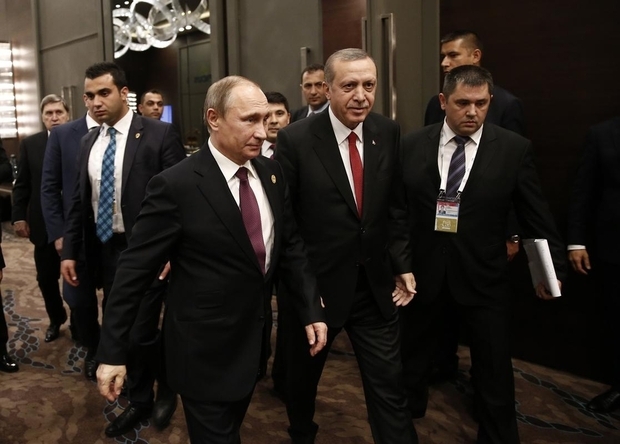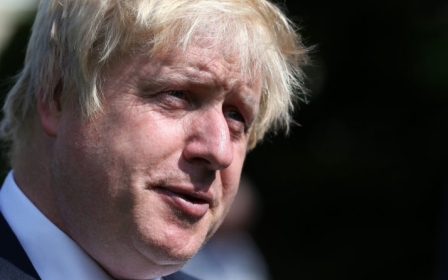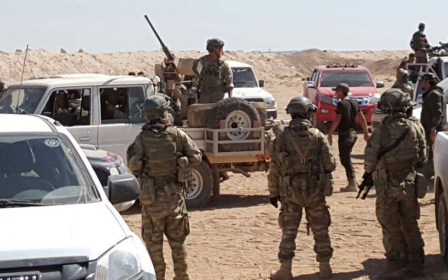From zero problems to real politik: Turkey's foreign policy after Davutoglu

The resignation of Ahmet Davutoglu as Turkey's prime minister in May was accompanied by a great deal of bets and speculation about the country's foreign policy.
Davutoglu, who became his country’s foreign minister in 2009 before serving as prime minister from 2014 to 2016, was said to have adopted a foreign policy that led in the end to his country’s isolation in the region and to the decline in its standing at the international level.
The speculations and bets not only emanated from non-Turkish observer, but also came from within governing circles in Ankara, especially after the new prime minister, Binali Yildirim, announced in his first speech to the Turkish parliament that his government’s foreign policy would minimise enemies and increase friends.
During the first few weeks of Yildirim’s mission, Syria, which is the most complex of all crises and the most closely attached to Turkey’s regional interests, emerged as the focus of most of the speculation around the expected change in Turkey’s foreign policy.
In June, several mediation efforts succeeded in putting an end to the estrangement between Moscow and Ankara that started in November when the Turkish armed forces shot down a Russian fighter plane.
An untrue and incorrect picture was propagated, especially within circles of Assad regime supporters, about the positive development in Turkish–Russian relations. The development was depicted as a major reversal of the Turkish position, which would soon be reflected in Turkey’s policy toward the Syrian crisis.
During the days that preceded the failed coup attempt in Turkey in July, Syrian circles went so far in their exaggerations as to expect an imminent meeting between a senior Turkish official and the ruler of Damascus.
A push to intervene
Turkish–Russian relations did indeed improve and increasingly so since the phone call between Erdogan and Putin in June that ended the estrangement. Yet it was clear that the St Petersburg meeting between the two presidents last month succeeded in normalising economic and commercial relations without achieving any noticeable agreement on settling the Syrian crisis.
If any positive changes did occur with regard to Syria, it is that Russia is more prepared to understand the nature of vital Turkish interests. Also, in the weeks that have followed, the two states have started to coordinate in order to prevent a repeat of the shooting down of the Russian plane.
Apart from that, the future of the Syrian regime and its president continue to be a cause of a major contention between Moscow and Ankara.
In the end, if there is a deal which could lead to a political agreement to resolve the Syrian problem, Moscow would make it with the US, not with Turkey or Iran which sit in the second row for Russia when it comes to the powers involved in Syria.
The US alone possesses the cards to impose severe sanctions on Russia, to legitimise - or not - the annexation of the Crimean Peninsula and to install its anti-missile defence system in Russia's European neighbourhood.
In any case, Turkey ultimately did not withdraw from Syria, open a channel of communication with the Assad regime or make concessions worth mentioning to either Russia or Iran. Instead, Turkey's policy in Syria became even more interventionist than before.
Protecting interests
The Turkish government realised that the troops of the Democratic Union Party (PYD) - which Ankara believes is nothing but a Syrian branch of the terrorist-designated Kurdish Workers Party (PKK) - did not withdraw from positions they gained from the Islamic State (IS) group to the west of the Euphrates and that the party was preparing to expand the area under its control in the direction of Jarabulus and Al-Bab. In response, Turkish armoured units and special forces, accompanied by Free Syrian Army troops, advanced across the borders into northern Syria.
Over the past three weeks, the Free Syrian Army troops succeeded, with the support of the Turkish forces, to seize control of the strip along the Syrian borders to the west of the Euphrates from Jarabulus to Azaz and seem now to be heading toward the city of Al-Bab.
Most probably, if the armed units of the Kurdish Democratic Party refuse to withdraw from the west of the Euphrates to its east, these units will ultimately be compelled to withdraw by the use of force.
However, there is no Turkish plan to settle the Syrian crisis with arms, an objective Turkey would struggle to achieve anyway. Nor does Ankara plan to remain inside Syria for long, regardless of the stances of the parties involved in the crisis toward its intervention in the north.
So it is clear that this intervention occurred to protect vital Turkish interests that seemed to be faced with major threats in recent months.
Safe haven dream dies
The truth is that the project of establishing relative security across the Syrian border goes back to last year when Davutoglu's government and the Obama administration reached an agreement permitting the Turkish army to completely liberate the region from Jarabulus to Azaz from the control of IS and turn it into a terrorist-free zone.
Turkey resorted to this option as an alternative to the idea of a safe haven which has been opposed by the Obama administration, without sufficient justification, since it was first proposed in 2012.
In other words, Turkey, which is aware of how complex the Syrian crisis has become, deemed it necessary to establish a safe haven to accommodate the increasing numbers of Syrian refugees in an area next to the Turkish borders where it would be easy to provide help and aid to those Syrians who flee.
However, the project was no longer implementable after the Turkish–Russian estrangement in November - and the advance of the PYD’s troops to the west of the Euphrates and their refusal to withdraw from the region made the Turkish military intervention more pressing. But the increasing improvement in relations between Turkey and Russia then created a suitable environment for such an intervention.
Harsh reality
There is no doubt whatsoever that Turkey’s regional and international standing was not at its best during the first half of this year. However, this was not because of the vain desires on the part of a certain Turkish leader, but because of the rapid transformations in the region.
The military coup against the newly born democracy in Egypt had a profoundly negative impact on the situation in Turkey and on its role. By virtue of the short-sighted policies adopted by the Obama administration in Syria and Iraq, the negative effects of the coup soon accumulated, especially with regard to the American protection accorded to the PYD.
The negative repercussions reached their peak with the downing of the Russian plane and the estrangement with Moscow.
There is no doubt that Ankara, which started to see the difficulty of its position at the end of last year and the beginning of this year, needed to take rapid steps to improve the strategic climate around it. But geopolitics tend to favour stability instead of change, and even when they change, they do so rather slowly.
Regardless of the desires or inclinations of individuals, the harsh realities of geopolitics eventually impose themselves. Syria will not uproot itself to the neighbourhood of Mozambique, IS can never become a sensible neighbour and the Kurdish PYD will not suddenly become a source of reassurance.
This is what prompted Erdogan, while commenting on the operations carried out by his country’s troops in the north of Syria earlier this month, to say that the world has to understand that the country lives in the region. "We don't have any option to step back at this point," he said.
Turkey is not a superpower, but it does seem to be heading towards becoming a transformational force in its own neighbourhood, a position similar to the role Germany has within Europe. One of the things rising powers in the world share in common is that, as soon as they begin to realise themselves, they start exercising influence in their region. Turkey will not be an exception regardless of what government holds the reins of power in Ankara.
- Basheer Nafi is a senior research fellow at Al Jazeera Centre for Studies.
The views expressed in this article belong to the author and do not necessarily reflect the editorial policy of Middle East Eye.
Photo: Turkish President Recep Tayyip Erdogan and Russian President Vladimir Putin last week on the G20 sidelines (AA)
This article is available in French on Middle East Eye French edition.
New MEE newsletter: Jerusalem Dispatch
Sign up to get the latest insights and analysis on Israel-Palestine, alongside Turkey Unpacked and other MEE newsletters
Middle East Eye delivers independent and unrivalled coverage and analysis of the Middle East, North Africa and beyond. To learn more about republishing this content and the associated fees, please fill out this form. More about MEE can be found here.





